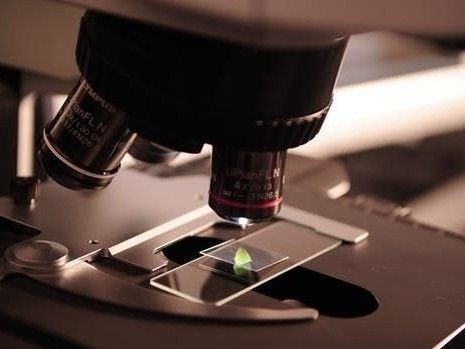Department of Biology and Chemistry
Biology BS Concentrations
At CSUMB there are three concentrations within the Biology major. Click any link below to learn more about the pathway for each one.

Ecology, Evolution, and Organismal Biology
Use the latest technologies to learn about biodiversity, habitats, and ecological processes. Typical careers for students who choose this concentration include veterinarian school, lab technician, field or marine biologist, graduate school in biology, naturalist, museum curator, zoo biologist or aquarist, and environmental consultant.
Ecology, Evolution, and Organismal Biology Requirements

Molecular Biology
At the intersection of biology, chemistry, and genetics, this concentration is for students interested in the fields of bioinformatics, genomics, and biochemistry. This concentration also provides Pre-health students with the foundation needed to attend medical, pharmacy, and dental schools, physician assistant programs, and genetic counseling programs.
Molecular Biology Requirements

Biology Teacher Preparation
CSUMB Science Technology Engineering and Math (STEM) teacher preparation provides advising, mentoring, teaching experience through service learning, financial aid, academic support and hands-on activities designed to improve student teaching and learning. Students who have a strong desire and dedication to become highly qualified science and/or mathematics teachers at the middle or high-school levels receive mentorship and strategic advising for a career in teaching. Collaborative learning support in early STEM courses (introductory biology, chemistry, and physics) immediately after high school promotes the recruitment and retention of teachers from courses. Frequent and varied grade level experience of Next Generation Science Standards (NGSS) aligned content within a classroom prepares future teachers to implement inquiry in their classrooms. Engaging future teachers in the practical tasks of teaching, assessment, observation, and reflection improves the process of learning and development aligned with NGSS in the discipline. Professional Development around Assessment of Learning where teachers incorporate data analysis to support improving students’ achievement, iteratively teaching to meet the standards. STEM coaching provide teachers with necessary support to change instructional strategies and build STEM content knowledge. Mentoring by STEM Leaders, CSUMB faculty who co-teach, co-plan, and model lessons with new teachers, encourage the adoption of best practices. We work with teachers to strategically integrate technology in instruction and plann NGSS aligned lessons. We foster an iterative culture of teaching as science where experimentation and innovation are celebrated. We are investing in the next generation of science educators.